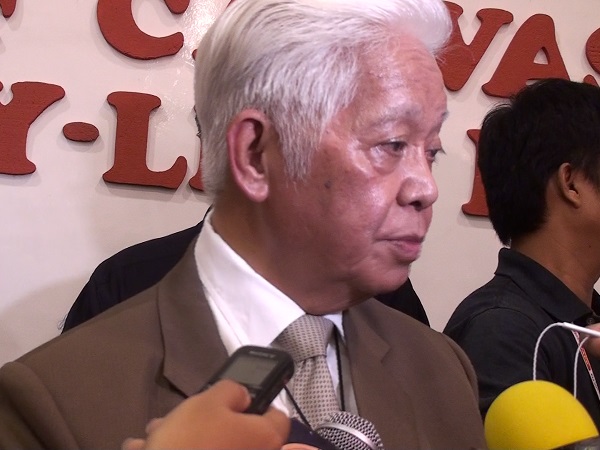Brillantes: Abolish barangays, SK
MANILA, Philippines—Smarting from the unruly hordes of would-be registrants who descended on election offices on Wednesday, Commission on Elections (Comelec) Chair Sixto Brillantes Jr. on Thursday called for the abolition of the barangay and Sangguniang Kabataan (SK) systems.
Brillantes also said the Election Registration Board (ERB) would go over the list of new registrants to weed out those who had illegally registered on July 22-31.
He noted that a day before Wednesday’s deadline, the Comelec had already recorded 1.2 million new registrants, or 50 percent more than the 800,000 it had expected would sign up to vote in the barangay and SK elections on Oct. 28.
“Maybe a good way to stop this from happening again is to abolish the SK and also the barangay. We have been advocating for that for a long time,” Brillantes said in an interview.
He urged President Aquino to at least certify pending bills in Congress calling for the postponement of the SK elections in October.
Article continues after this advertisement“Let’s see whether the barangay will be able to run without the SK. If it can run without the SK, let’s abolish the youth councils,” he said. SK officials are 15- to 25-year-olds who have been accused of following in their elders’ graft-ridden political ways.
Article continues after this advertisement‘Hakot’ system
Brillantes noted that SK candidates also resorted to the “hakot” system of herding supporters to local Comelec offices to register.
“We are teaching them to resort to hakot even at their young age,” he said.
Brillantes said the unruly scenes outside Comelec offices on Wednesday was unprecedented and “abnormal.”
“What happened and the high number of people were abnormal. That cannot be ordinary. Did you see the large number of people? The unruly behavior? There was even a stampede. Has that happened before? No,” Brillantes said.
Hunger, rain, exhaustion
“My assessment is that one candidate herded his supporters and his opponent saw that and did the same. So they (registrants) all ended up waiting (outside Comelec offices),” he said.
Brillantes said he did not believe Filipino voters would, on their own, willingly suffer hunger, the rain and exhaustion just to register to vote.
“Ask them why they were willing to suffer the rain, hunger and exhaustion? Are our voters now that motivated? I don’t think so,” Brillantes said.
Biometrics system
“Most probably they were hakot, transferees, those who were paid, flying voters, and those who were told that they would not get benefits if they did not register. Who told them that? The candidates,” he said.
Brillantes said that herding registrants was not illegal but the problem was that this discouraged or disenfranchised legitimate registrants from signing up.
Brillantes said the ERB would use the Comelec biometrics system and the Automated Fingerprint Identification System to purge illegal registrants from the list of new voters.
“That’s going to be easy because we now have biometrics. We will see who registered twice or who transferred (precincts) without meeting the six-month residency requirement,” he said.
Illegal registrants
Brillantes said that as of Tuesday, the Comelec had recorded 2.3 million SK voters (those above 15 but below 18 years old) and 1.2 million regular voters.
“We already had 52 million voters registered last May. Why would there be another million? I’m sure we’re going to find many (illegal registrants),” Brillantes said.
